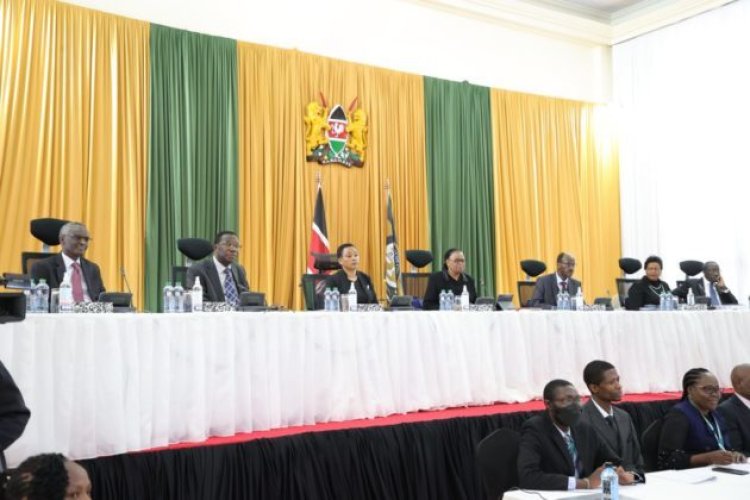Lawyers Representing IEBC Clash at Supreme Court
Lawyers representing the Independent Electoral and Boundaries Commission (IEBC) have clashed over the use of the affidavits filed by Commissioner Irene Masit.

Masit is one of the four commissioners who opposed the presidential results announced by the chairperson, Wafula Chebukati.
Senior Counsel Githu Muigai - representing the IEBC chairperson Wafula Chebukati - argued that affidavits filed by lawyers whose appointment had been struck out should not be used.
The former AG was making reference to the appointment of Issa Mansour as the lawyer representing Masit, vice chairperson Juliana Cherera, Francis Wanderi and Justus Nyang'aya.
"To the extent that the affidavit was filed in documents by Issa Mansour. The understanding from yesterday was that his documents were struck out alongside his notice of appearance, then there ought not to be a reference to that affidavit," he argued.
However, Senior Counsel Paul Muite - representing the four dissenting commissioners- stated that the striking out was on the appointment of the law firm and not the documents.
"There is an error that was stated by my colleague. The ruling by this honourable court struck out the notice of appointment of advocates by Issa that is what I heard with my ears," Muite stated.
The clash saw Chief Justice Martha Koome intervene as she directed Julie Soweto - a member of Raila Odinga's legal team to identify the document she was making reference to in her submissions.
"Counsel (Muigai) without wasting a lot of time, I think we are capable of discerning our own ruling. Let her (Soweto) identify the affidavit she is referring to," she directed.
On her part, Soweto indicated that she was making reference to an affidavit that was filed by Masit's lawyer - who is different from the law firm Muigai made reference to.
"That issue can be put to rest very simply. The affidavit I refer to by Irene Masit is drawn and filed by MS Ouma J and Associates Advocates. I believe that each of the commissioners had the right to and did appoint their own advocates in response to the petition," Soweto clarified.
The contention about who represents the electoral body was one of the contentious issues ruled on by the seven-judge bench. In a directive, the court stated that it could not make a determination on who would represent the seven commissioners indicating that it was an internal issue.
IEBC was directed to settle the matter of legal representation internally.


























